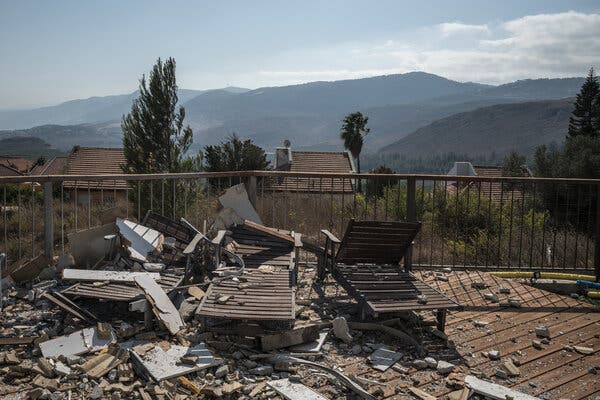Hezbollah said in a statement that the chief of its forces in southern Lebanon was alive and well.

Israel’s Air Force attempted on Monday evening to kill Ali Karaki, Hezbollah’s top commander in southern Lebanon, with an airstrike in the capital, Beirut, according to two current Israeli officials and one former Israeli official with knowledge of the operation.
The Israeli military was still trying to determine whether the strike had killed Mr. Karaki, according to the officials, who spoke on the condition of anonymity to discuss military decisions.
Hezbollah said in a statement on Monday night that Mr. Karaki was alive and well. Lebanon’s National News Agency reported that a building in the Bir al-Abed neighborhood of Beirut’s southern suburbs had been hit with three missiles in an Israeli attack.
Mr. Karaki’s death would be a considerable blow to Hezbollah’s capacities. He is the head of Hezbollah’s forces along the Israel-Lebanon border, and his troops would be the first line of defense against an Israeli invasion of southern Lebanon.
He is one of the most senior Hezbollah leaders still alive, after several successful Israeli strikes on other commanders in recent months, including Fuad Shukr in July and Ibrahim Aqeel last week.
Mr. Karaki, Mr. Shukr and Mr. Aqeel were listed on the same day, in 2019, as being targets of United States financial sanctions.
Experts said that Israel’s ability to target top leaders like Mr. Karaki reflected the extent to which Israel has penetrated Hezbollah’s communications network in the 18 years since the sides’ last war.
Ronen Bergman is a staff writer for The New York Times Magazine, based in Tel Aviv. His latest book is “Rise and Kill First: The Secret History of Israel’s Targeted Assassinations,” published by Random House. More about Ronen Bergman
Patrick Kingsley is The Times’s Jerusalem bureau chief, leading coverage of Israel, Gaza and the West Bank. More about Patrick Kingsley



